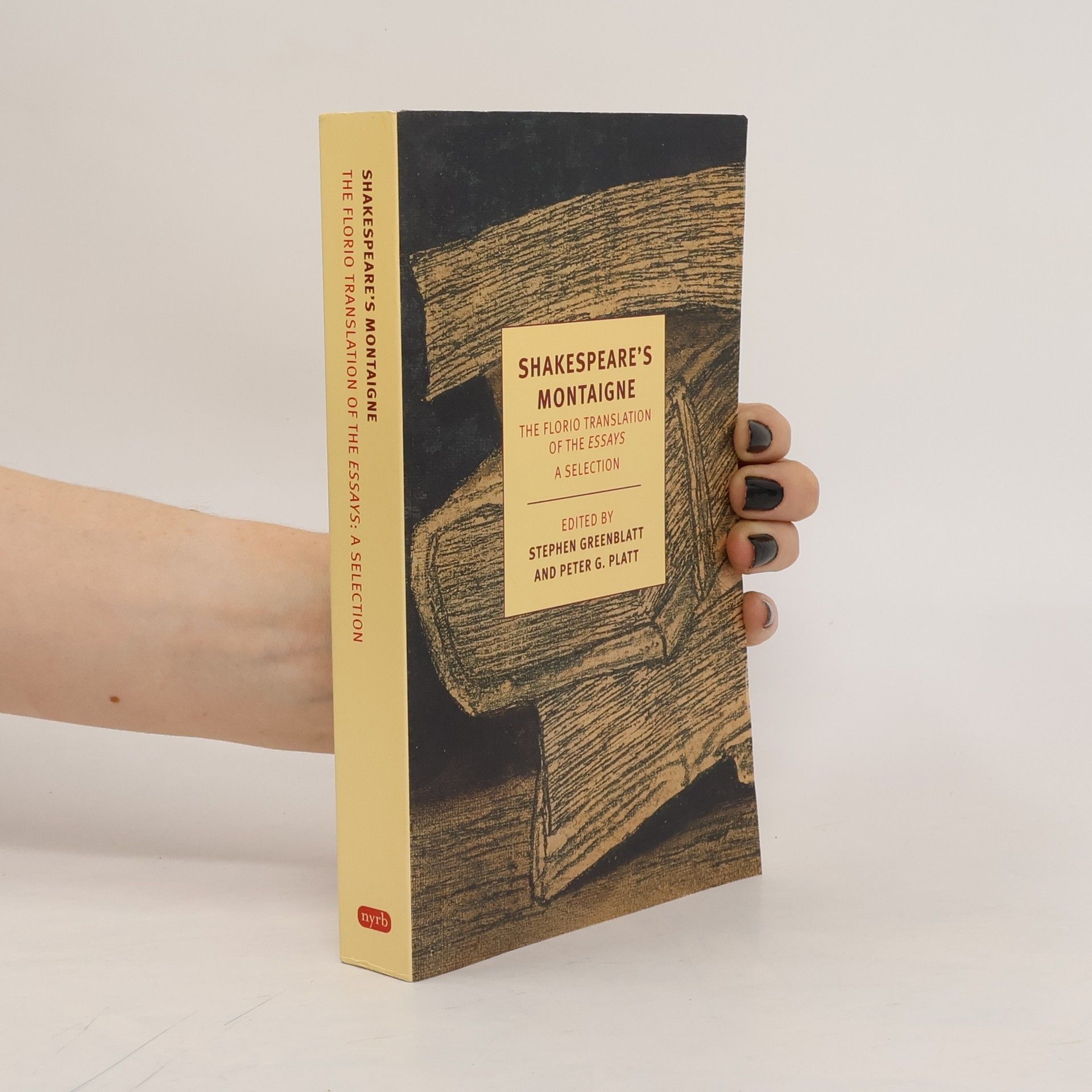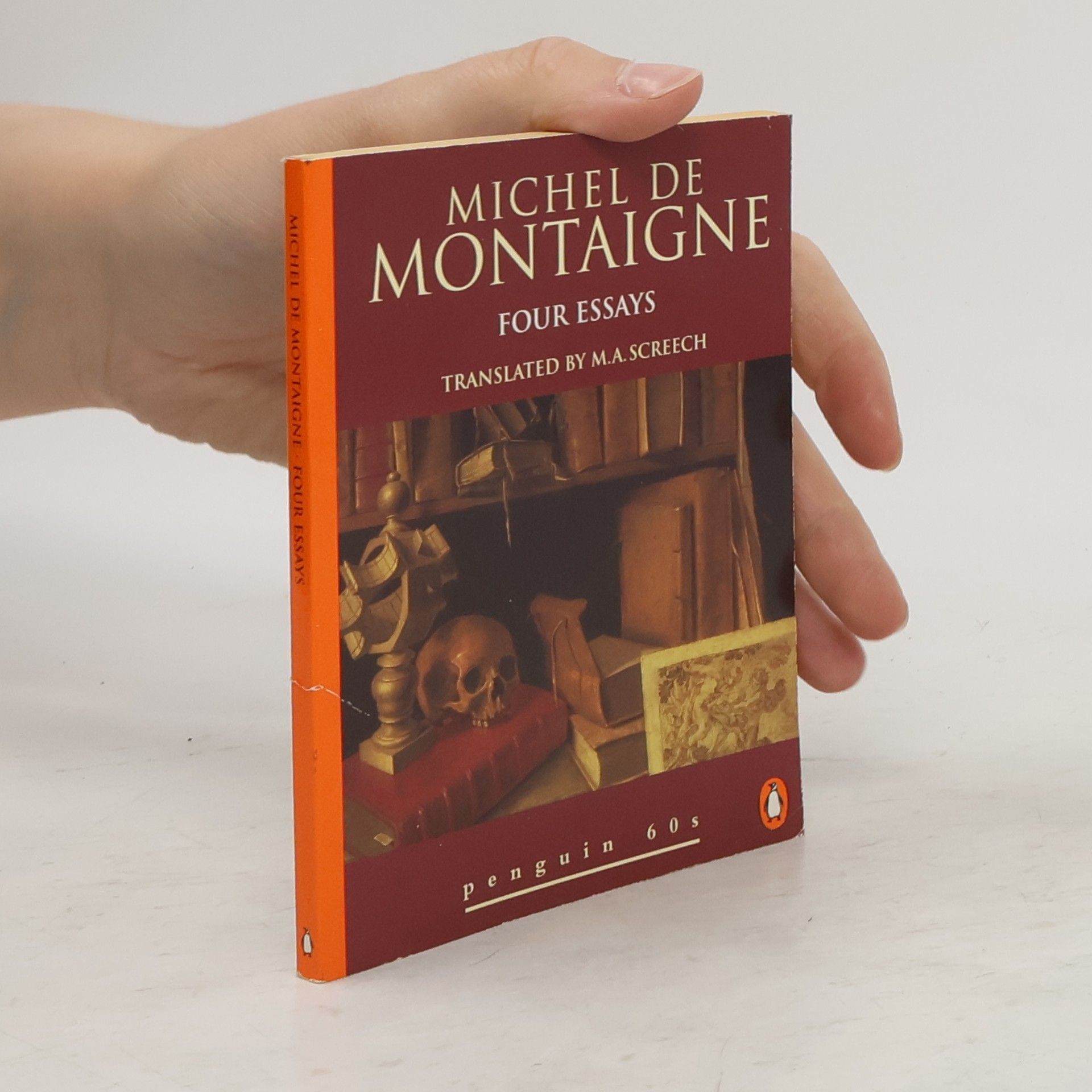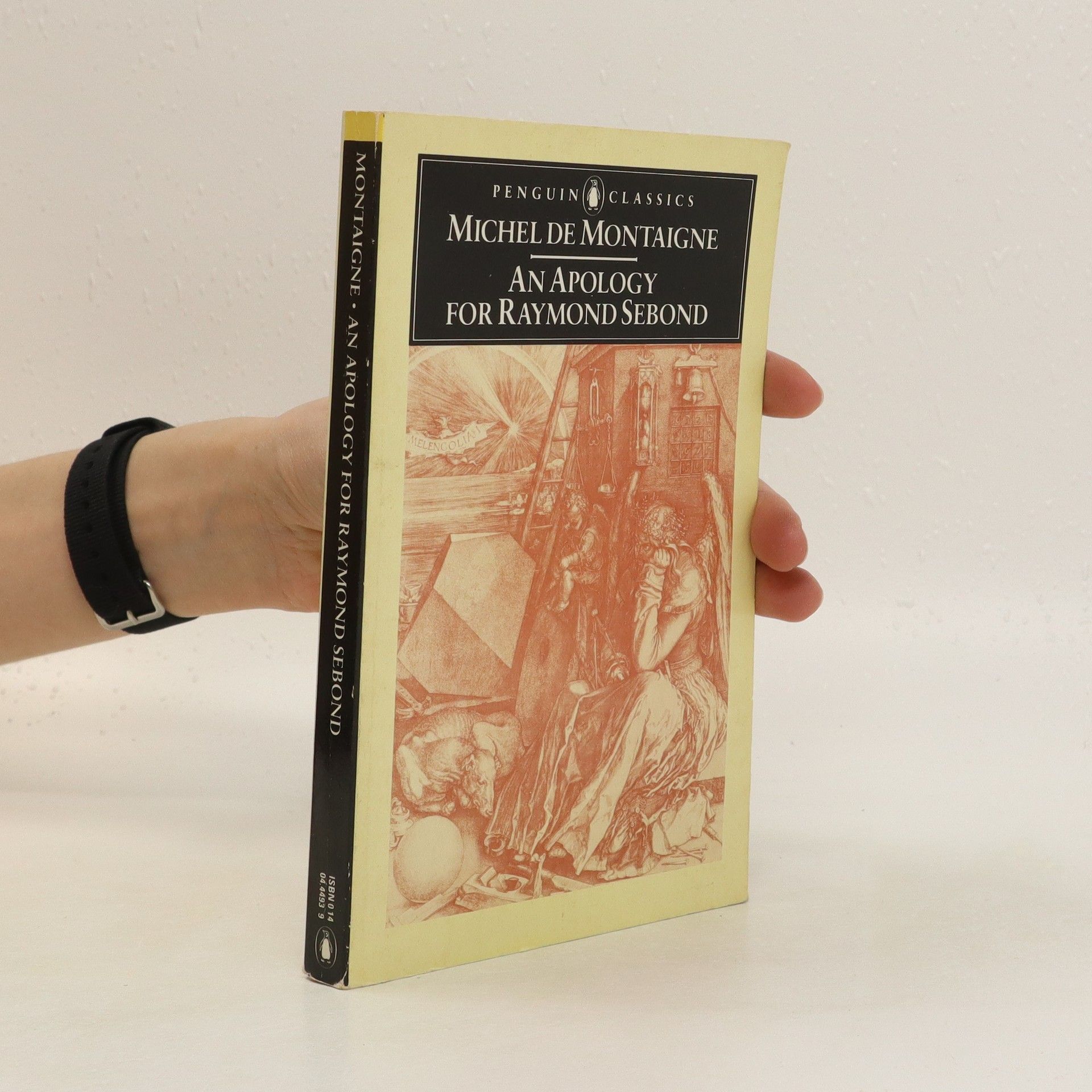Encyclopædia Britannica is proud to offer one of the most acclaimed publishing achievements of the 20th century, Great Books of the Western World. This monumental collection compiles history's greatest written works, from the ancient classics to more recent masterpieces. Great Books of the Western World contains 517 works from 130 of the most renowned minds throughout history. Volumes 1 and 2 comprise the Syntopicon®, a unique guide that enables you to investigate a particular idea and compare the perspectives of different authors. The Syntopicon organizes thirty centuries of thought into 102 Great Ideas, subsequently divided into topics and subtopics to effectively explore the different viewpoints over time. Authoritative, accurate, and complete, this collection represents the essential core of the Western literary canon
Michel de Montaigne Libri
Michel de Montaigne, uno degli scrittori più influenti del Rinascimento francese, è noto per aver reso popolare il saggio come genere letterario. Unì magistralmente la profonda speculazione intellettuale con aneddoti personali e autobiografici, creando un'opera di immenso e duraturo impatto. Conosciuto per il suo spirito antidogmatico e la sua celebre domanda, "Cosa ne so io?", Montaigne incarnò una sensibilità moderna esaminando il mondo attraverso la lente del proprio giudizio. Il suo stile accessibile, che bilancia acume intellettuale e narrazione personale, continua a ispirare scrittori e lettori.

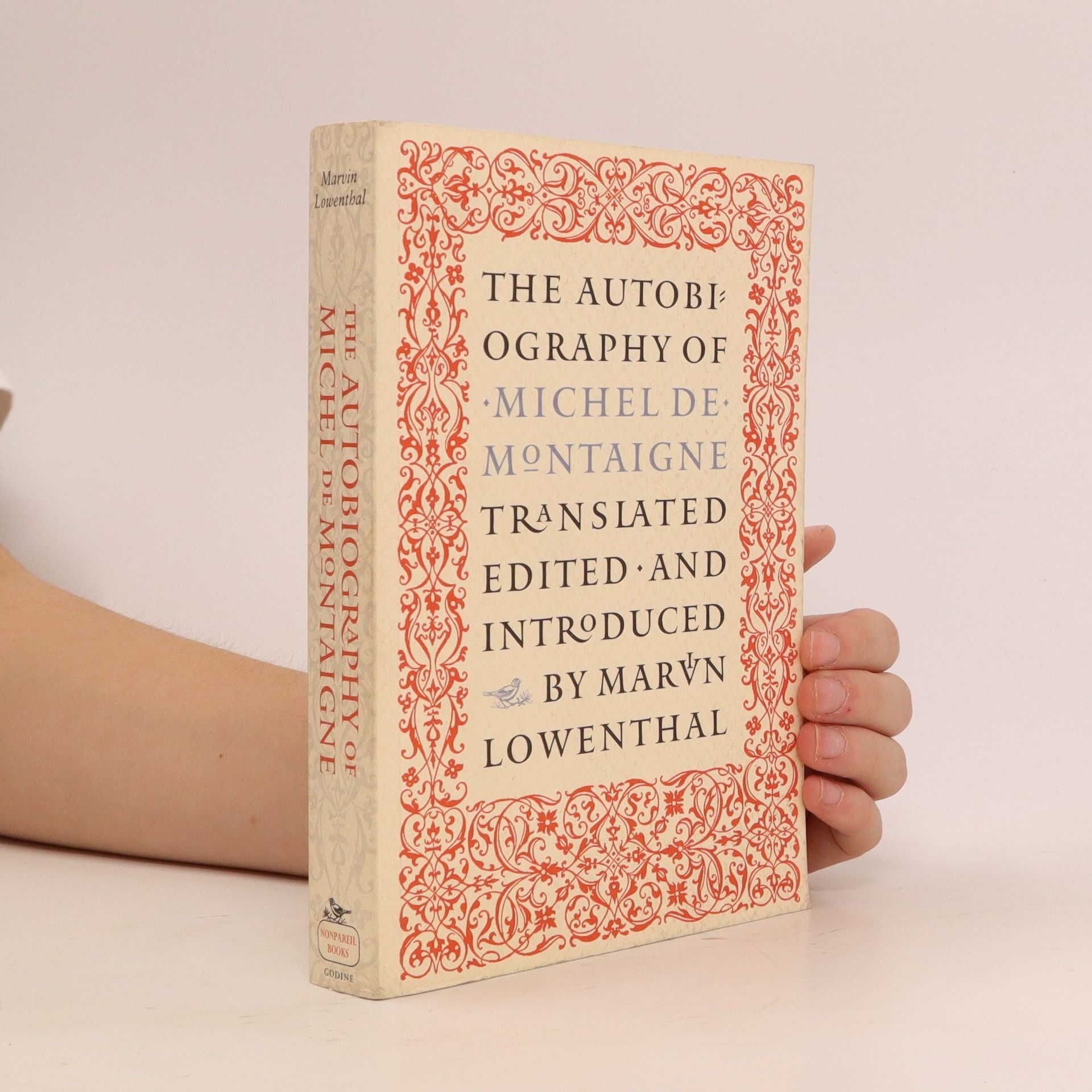
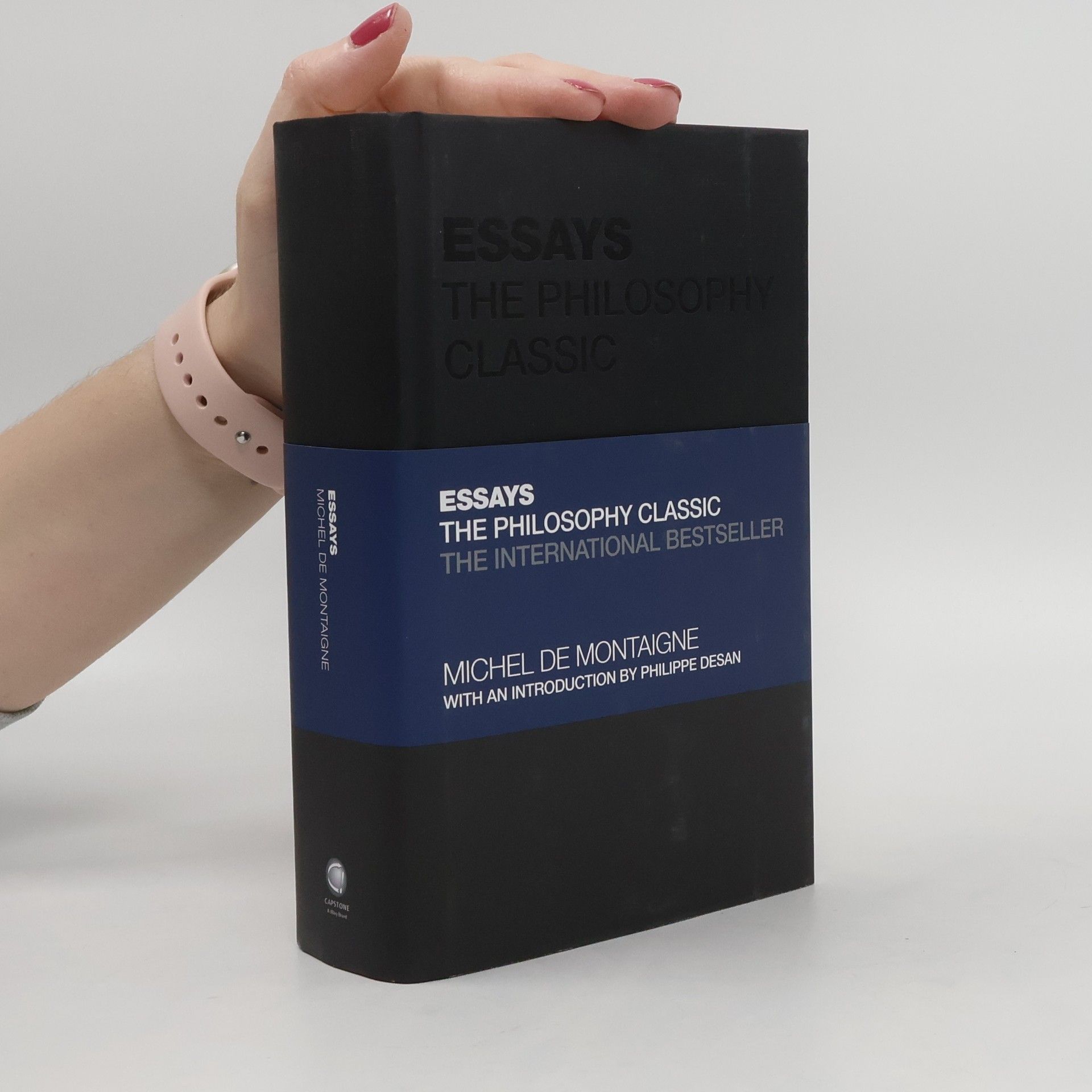



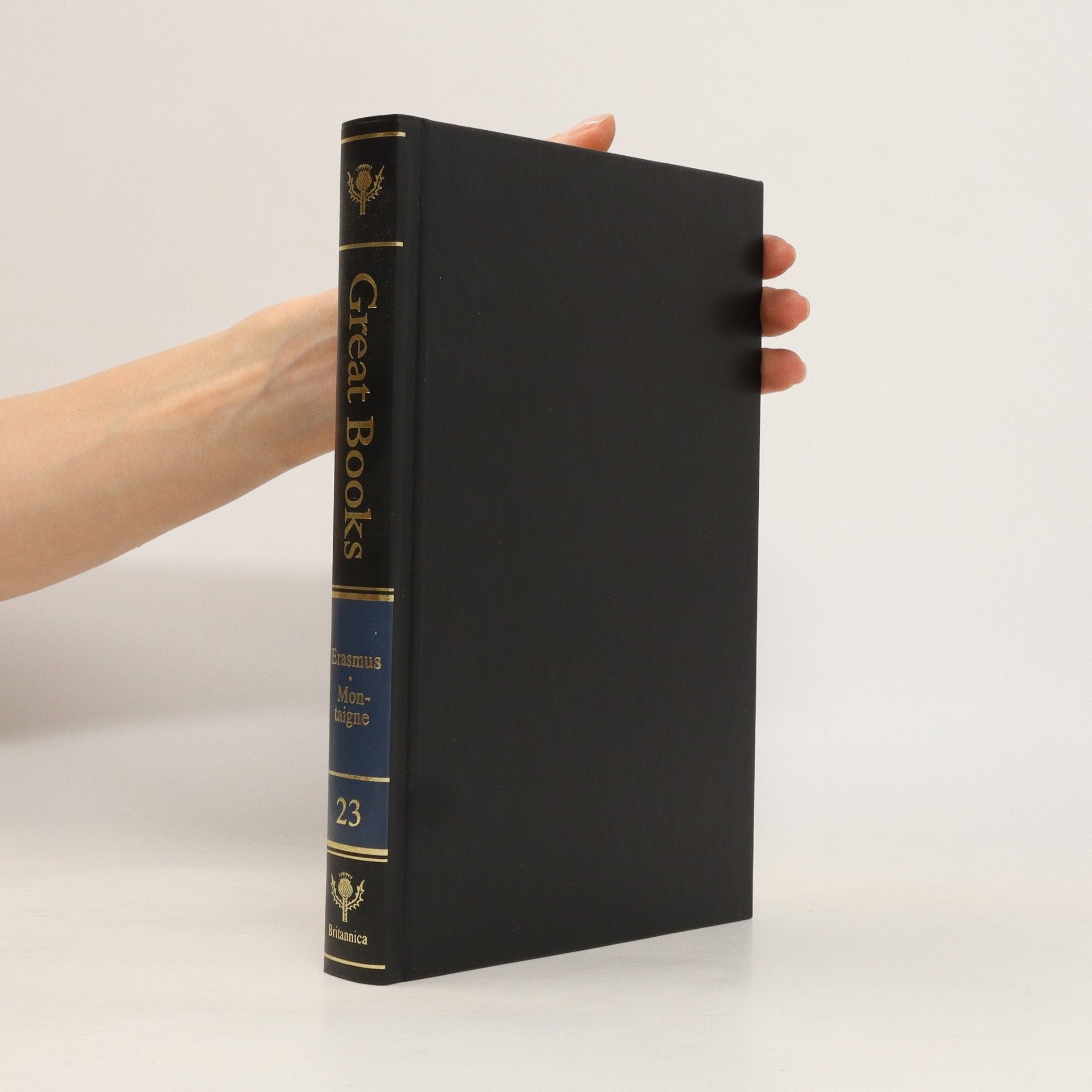
The Essays; Translated by Charles Cotton; Volume 2
- 536pagine
- 19 ore di lettura
Culturally significant, this work has been preserved to maintain its original integrity, showcasing copyright references and library stamps that highlight its historical importance. It serves as a vital piece of civilization's knowledge base, reflecting the scholarly value placed on the text. The reproduction aims to offer readers an authentic experience of the original artifact, emphasizing its relevance in understanding cultural heritage.
The Complete Essays
- 1283pagine
- 45 ore di lettura
In 1572 Montaigne retired to his estates in order to devote himself to leisure, reading and reflection. There he wrote his constantly expanding 'essays', inspired by the ideas he found in books from his library and his own experience. He discusses subjects as diverse as war-horses and cannibals, poetry and politics, sex and religion, love and friendship, ecstasy and experience. Above all, Montaigne studied himself to find his own inner nature and that of humanity. The Essays are among the most idiosyncratic and personal works in all literature. An insight into a wise Renaissance mind, they continue to engage, enlighten and entertain modern readers.
The Complete Works
- 1376pagine
- 49 ore di lettura
Describing his collection of Essays as `a book consubstantial with its author', Montaigne identified both the power and the charm of a work which introduces us to one of the most attractive figures in European literature. schovat popis
Essays: The Philosophy Classic: A Selected Edition for the Contemporary Reader
- 656pagine
- 23 ore di lettura
"Essais (Essays), the large collection of short essays by Michel de Montaigne was published in 1580. The essays are a reflection of Montaigne's philosophy, his interests and learning. They describe humans, particularly Montaigne himself, and he expressed his thoughts freely through his essays. His essays explore subjects as diverse as war-horses and cannibals, poetry and politics, sex and religion, love and friendship, ecstasy, and experience. Montaigne is associated with establishing the essay as a recognized genre in literature, and was the first person to use the word 'essay' to describe his writings. Part of the bestselling Capstone Classics series. This high-quality, hardcover volume is a must-have for readers interested in the writings of Michel de Montaigne"-- Provided by publisher
s/t: Compromising the Life of the Wisest Man of His Times: His Childhood, Youth, and Prime; His Adventures in LoveEveryone acknowledges the Essays of Michel de Montaigne as one of the glories of civilized thought. But in this volume, Marvin Lowenthal has drawn from his letters, essays, travel writings, and manuscripts to create a biography of his life told in his own words, thereby fulfilling Montaigne s intention of presenting his self-portrait to the world. For it was Montaigne who wrote, My book and I are one, and into his writing he poured the amazing varieties of his perceptions, his unflinching powers of observation and analysis, and his deeply felt love of humanity in all its messy contrariness. Above his desk, on a beam on his ceiling, were inscribed the words nihil humani alieni mihi puto : nothing human is alien to me and nothing was, for into his writing he distilled his tender heart and biting wit, his nonsense and wisdom, his passions and his hates. By collecting and arranging these autobiographical passages into a unified whole, Lowenthal has framed a complete portrait in this rich and rewarding book. All of Montaigne is here: his adventures and love affairs, his marriage, travels, tastes, and opinions. Seldom has so much wit, wisdom, and pure entertainment been packed into a single volume.
Shakespeare's Montaigne
- 418pagine
- 15 ore di lettura
An NYRB Classics OriginalShakespeare, Nietzsche wrote, was Montaigne’s best reader—a typically brilliant Nietzschean insight, capturing the intimate relationship between Montaigne’s ever-changing record of the self and Shakespeare’s kaleidoscopic register of human character. And there is no doubt that Shakespeare read Montaigne—though how extensively remains a matter of debate—and that the translation he read him in was that of John Florio, a fascinating polymath, man-about-town, and dazzlingly inventive writer himself.Florio’s Montaigne is in fact one of the masterpieces of English prose, with a stylistic range and felicity and passages of deep lingering music that make it comparable to Sir Robert Burton’s Anatomy of Melancholy and the works of Sir Thomas Browne. This new edition of this seminal work, edited by Stephen Greenblatt and Peter G. Platt, features an adroitly modernized text, an essay in which Greenblatt discusses both the resemblances and real tensions between Montaigne’s and Shakespeare’s visions of the world, and Platt’s introduction to the life and times of the extraordinary Florio. Altogether, this book provides a remarkable new experience of not just two but three great writers who ushered in the modern world.
Four Essays
- 100pagine
- 4 ore di lettura
Four essays from Michel de Montaigne's "The Complete Essays."
The ESSAYS
- 418pagine
- 15 ore di lettura
Taken together, this selection of essays forms an exquisitely drawn portrait that depicts the strength and warmth of Montaigne's personality. And, as J.M. Cohen observes in his introduction, 'One sees, as one reads him, how broad his mind was, and how many of the ideas of the next two centuries he grasped by anticipation.'
An apology for Raymond Sebond
- 240pagine
- 9 ore di lettura
An Apology for Raymond Sebond is widely regarded as the greatest of Montaigne's essays: a supremely eloquent expression of Christian scepticism. An empassioned defence of Sebond's fifteenth-century treatise on natural theology, it was inspired by the deep crisis of personal melancholy that followed the death of Montaigne's own father in 1568, and explores contemporary Christianity in prose that is witty and frequently damning. As he searches for the true meaning of faith, Montaigne is heavily critical of the arrogant tendency of mankind to create God in its own image, and offers his personal reflections on the true role of man, the need to eschew personal arrogance, and the vital importance of faith if we are to understand our place in the universe. Wise, perceptive and remarkably informed, this is one of the true masterpieces of the essay form.
